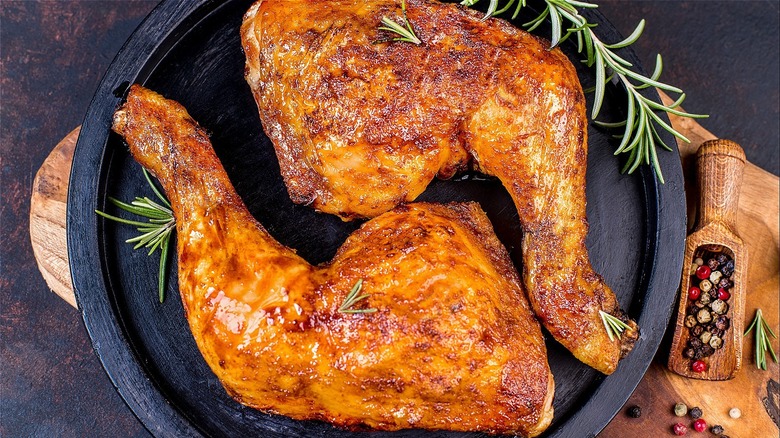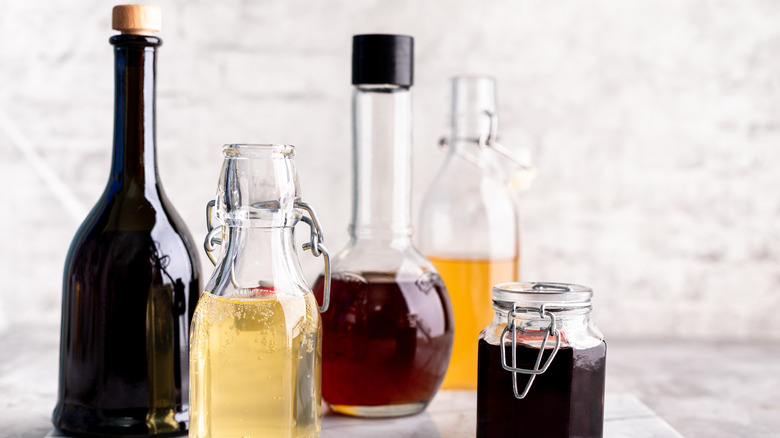The Secret Ingredient That Could Take Your Chicken Dinner To The Next Level
Braising a chicken is always in vogue, and it's easy to see why — the cookware required is minimal, the process is beginner-friendly, the flavor possibilities are endless, and the payoff is huge. It's the perfect thing to make when you feel like stretching your Sunday-supper leftovers for a week, but it's also ideal for impressing a crowd without laboring over the stove all day, as braised chicken uses the combination-cooking method of light searing followed by low-and-slow stewing.
Celebrity chef and restaurateur J. Kenji López-Alt has posted two braised chicken videos on his YouTube channel (including one-pot braised chicken with beans and chile verde), and Food52 dropped a Julia Child-inspired recipe on theirs. But just because there are countless ways to braise a chicken doesn't mean that it has to be complicated. On MyRecipes, Stacey Ballis let home cooks in on a "secret ingredient" that leans on an old French cooking method, and it's probably in your pantry right now.
Vinegar adds depth and brightness
As "Salt Fat Acid Heat" progenitor Samin Nosrat will tell you, cooking with acid is essential to balancing the flavors in a dish — especially with something like braised chicken, which has a strong richness thanks to the fat rendered from the bird. Ballis agrees. "Replacing a portion of the stock or wine used for braising with the punchy acidity of vinegar creates a sauce with great depth, but with plenty of tongue-tingling oomph," she writes on MyRecipes. "The best part is that it doesn't require learning a new recipe, but rather, simply adding in an appropriate vinegar to the braising liquid in my favorite dishes and letting the mixture do all the work." Ballis recommends adding a splash of the same vinegar just before serving to bring a "bright intensity" that cuts through the buttery flavors of the chicken.
If you're ready to start improvising, rely on Ballis' 3:3:1 ratio. That's three parts stock or water, three parts wine "or other liquid like juice or beer," and one part vinegar. As for which kinds of vinegar to use, she offers some guidance based on the flavors of various cuisines, including red or white wine vinegar for Greek recipes, sherry vinegar for Spanish recipes, and champagne or fruit vinegar for French recipes. Et voilà: Ballis' "secret ingredient" makes the timeless dish even more deliciously accessible.

